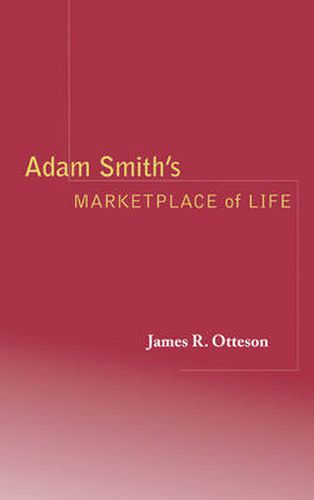Readings Newsletter
Become a Readings Member to make your shopping experience even easier.
Sign in or sign up for free!
You’re not far away from qualifying for FREE standard shipping within Australia
You’ve qualified for FREE standard shipping within Australia
The cart is loading…






Adam Smith wrote two books, one about economics and the other about morality. His Wealth of Nations argues for a largely free-market economy, while his Theory of Moral Sentiments argues that human morality develops out of a mutual sympathy that people seek with one another. How do these books go together? How do markets and morality mix? James Otteson provides a comprehensive examination and interpretation of Smith’s moral theory and shows how his conception of the nature of morality applies to his understanding of markets, language and other social institutions. Considering Smith’s notions of natural sympathy, the impartial spectator, human nature, and human conscience the author also addresses the issue of whether Smith thinks that moral judgments enjoy a transcendent sanction. James Otteson sees Smith’s theory of morality as an institution that develops unintentionally but nevertheless in an orderly way according to a market model.
$9.00 standard shipping within Australia
FREE standard shipping within Australia for orders over $100.00
Express & International shipping calculated at checkout
Adam Smith wrote two books, one about economics and the other about morality. His Wealth of Nations argues for a largely free-market economy, while his Theory of Moral Sentiments argues that human morality develops out of a mutual sympathy that people seek with one another. How do these books go together? How do markets and morality mix? James Otteson provides a comprehensive examination and interpretation of Smith’s moral theory and shows how his conception of the nature of morality applies to his understanding of markets, language and other social institutions. Considering Smith’s notions of natural sympathy, the impartial spectator, human nature, and human conscience the author also addresses the issue of whether Smith thinks that moral judgments enjoy a transcendent sanction. James Otteson sees Smith’s theory of morality as an institution that develops unintentionally but nevertheless in an orderly way according to a market model.